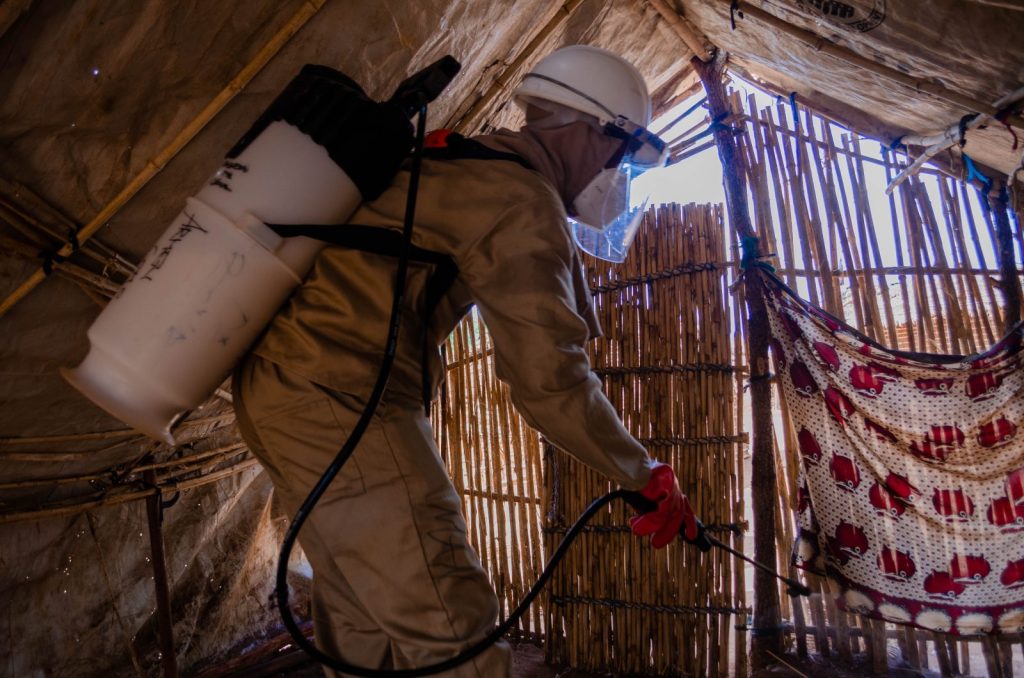MENTOR’s priority has also been malaria control in vulnerable settings – where people are most at risk because of factors such as conflict, extreme weather, forced displacement and a lack of healthcare.
For over 20 years we have adapted and expanded how we work to respond effectively to public health challenges and the behaviour and breeding patterns of malaria-transmitting mosquitoes.
Now an ever-increasing displacement crisis combined with the devastating effects of climate change, conflict and the impact on environments where mosquito species thrive threatens progress and puts millions of people at risk of disease and death. Recent funding cuts further exacerbates this growing public health crisis.
But new solutions and innovative tools are starting to reshape the malaria programme and deliver large-scale interventions that have the potential to protect the most vulnerable in a volatile world.
Integrating various control strategies and tools together with research, dedicated surveillance and partnerships gets results and makes a difference.
Which is why on World Malaria Day we join the call to Reinvest, Reimagine, and Reignite to end malaria.
Caption: Indoor Residual Spray campaign in Internally Displaced Person camps in Cabo Delgado, northern Mozambique.
- News
World Malaria Day
- Kathryn Johnson

